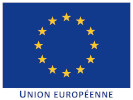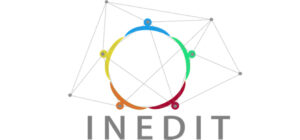Coordinateur(s)
Contact(s)
Remerciements
Ce projet a reçu un financement du programme de recherche et d’innovation Horizon 2020 de l’Union européenne dans le cadre de la convention de subvention n° 869952.

INEDIT (2020 - 2023)
- Libérer la créativité des consommateurs et des designers pour la co-création de nouveaux meubles répondant aux besoins de l’utilisateur unique dans un contexte industriel.
- Démocratiser l’accès aux ressources de production dans le secteur de l’ameublement.
- Aider les PME du secteur de l’ameublement à trouver de nouvelles opportunités commerciales.
Créer un cadre de solutions pour la création, l’ingénierie et la production distribuée de meubles adaptés aux besoins des clients. - Définir des stratégies de conception et de fabrication axées sur la réduction de l’impact écologique et la résolution des problèmes sociétaux.
- Créer un écosystème de toutes les parties prenantes au sein de l’Union européenne.
Contexte
INEDIT (open INnovation Ecosystems for Do It Together process) est une action orientée vers l’innovation dans le cadre du programme H2020 de l’Union européenne qui démarre à l’automne 2019 pour une durée de 36 mois. Le consortium mis en place est composé de 14 partenaires issus de neuf pays avec un financement de 6,4 M€ pour 36 mois (2019-2021). Le laboratoire ERPI soutient le consortium avec ses compétences de recherche sur l’innovation en particulier : conception d’un démonstrateur européen et expérimentation d’un écosystème local de recyclage des plastiques.
INEDIT crée un écosystème européen d’innovation ouverte DIT pour la cocréation de meubles durables. Il canalise la créativité des consommateurs, la façonne grâce aux compétences professionnelles des designers et la rend viable en s’appuyant sur l’expertise des spécialistes de la production afin de fournir de nouveaux produits durables, intelligents et personnalisés dans un délai de mise sur le marché plus court. L’INEDIT entend démontrer sa capacité à transformer l’approche bien connue du « Do It Yourself » (DIY) appliquée par les individus au sein des FabLabs en une approche professionnelle appelée « Do It Together » (DIT).
L’approche DIT sera appliquée par les clients et les producteurs professionnels, en particulier les PME, afin d’accroître la satisfaction des clients grâce à une production axée sur le client. L’approche DIT est une nouvelle approche qui capitalise sur les connaissances, la créativité et les idées de conception et d’ingénierie conceptualisées par des parties prenantes interdisciplinaires et parfois même par de nouveaux acteurs. Elle s’appuie sur les écosystèmes d’innovation européens existants qui façonnent de nouveaux produits dans les pays de l’UE. L’INEDIT démontre l’approche à travers quatre cas d’utilisation croisés ayant un impact sociétal élevé : la fabrication de panneaux de bois durables et l’impression 3D de bois, l’impression 3D de plastique recyclé (voir le projet Green FabLab) et la Smartification. La durabilité et la prise en compte des préférences individuelles, en particulier celles des femmes et des hommes, seront notre fil conducteur. L’INEDIT s’attaque à des défis sociétaux tels que la contribution à la réduction de la quantité de CO2 produite en se concentrant sur la production à l’échelle européenne, la création et le maintien d’opportunités d’emploi à l’échelle de l’UE. Cela conduira à de nouvelles opportunités commerciales soutenues par l’innovation des modèles d’entreprise. En outre, ces compétences de fabrication locales innovantes en réseau et ces installations de production à travers l’UE résoudront les problèmes éthiques au sein du réseau de fabrication. L’INEDIT entend démontrer, par le biais de sa double plateforme – numérique et physique – le potentiel d’innovation de la fabrication sociale dans le cadre de l’économie circulaire, en concevant à l’échelle mondiale tout en produisant à l’échelle locale.
Axes de travail
- Gestion du projet: Le WP1 apporte des ressources pour coordonner le projet INEDIT. Il veillera à ce que le travail soit effectué dans les délais et à ce que les résultats soient produits comme prévu ; il s’occupera de la gestion des risques et de la qualité liée aux autres modules de travail et veillera à ce que le projet respecte les questions d’éthique, de genre et de préférences individuelles.
- Spécification de l’approche DIT et des cas d’utilisation: Elle identifie l’état de l’art sur les environnements de co-création, recueille les besoins et les attentes pour l’approche DIT et classifie les cas d’utilisation appropriés et leurs exigences spécifiques. Il spécifiera les éléments de valeur à fournir par nos plateformes physiques et virtuelles résultantes et créera les scénarios de la chaîne de valeur globale DIT et les activités de formation.
- Mise en place d’une plateforme globale d’innovation ouverte centrée sur l’utilisateur: Elle vise à créer un cadre de technologies et de méthodes soutenant les différentes phases du processus INEDIT, de la cocréation à la fabrication. La plateforme d’innovation ouverte Fanvoice sera adaptée au processus DIT afin que les modules puissent être intégrés.
- Cadre d’une installation de démonstration de fabrication ouverte reproductible soutenant le processus INEDIT: Il s’agit de créer un cadre de démonstration pour les OMDF qui sont importants pour les clients et les PME, permettant aux parties prenantes de passer de la conceptualisation à la matérialisation avec la logistique durable adaptée dans une dynamique DIT.
- Modèles d’entreprise DIT durables: Il vise à créer des modèles commerciaux durables pour l’approche DIT. Il aborde les scénarios d’entreprise, le concept d’implication dans l’utilisation et l’orchestrateur axé sur la durabilité pour fournir à la fin une stratégie de déploiement.
- Expériences de démonstration et d’évaluation des cas d’utilisation: Il traite de l’instanciation de l’approche INEDIT dans quatre cas d’utilisation concrets : la fabrication de meubles en bois, l’impression 3D du bois, l’impression 3D du plastique recyclé et la smartification des meubles. L’objectif principal du WP6 est la validation complète du cadre INEDIT. Il fournit à la fois la validation et l’évaluation des résultats obtenus avec une tâche spécifique sur l’analyse culturelle en se concentrant sur la dimension de genre.
- Diffusion, communication et exploitation: Elle comprend toutes les activités liées à la communication, à la diffusion des résultats et à la stratégie d’exploitation. Il comprend également une tâche spécifique sur le renforcement de la communauté et l’implication des utilisateurs.
Production scientifique
You can find the associated scientific production from ERPI here (articles, conferences, reports, media)
The special issue in Journal of Innovation Economic and Management
Journal of Innovation Economics & Management
2023/1 No 40 De Boeck Supérieur
EU reference
EU page at: https://cordis.europa.eu/project/id/869952
Vous trouverez la production scientifique associée sur le site : https://cordis.europa.eu/project/id/869952
